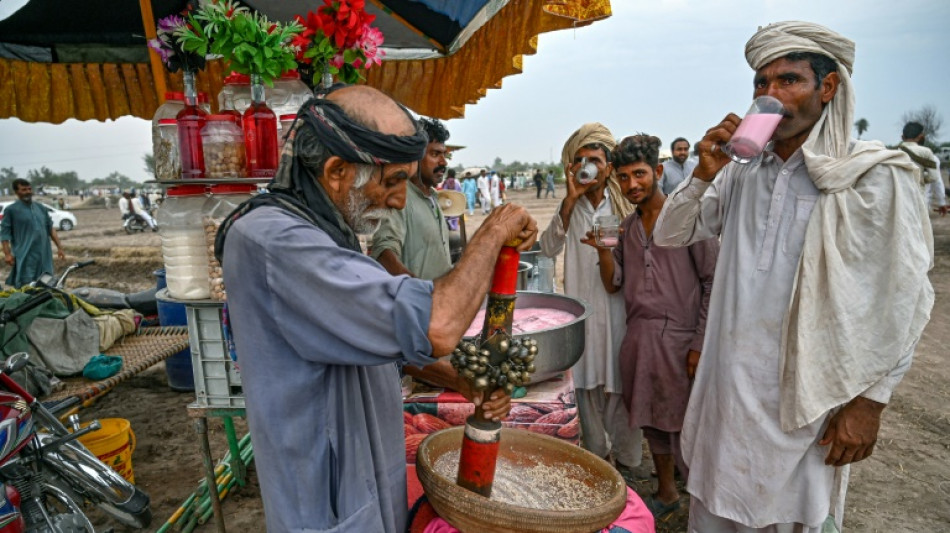
-
 Interpol backroom warriors fight cyber criminals 'weaponising' AI
Interpol backroom warriors fight cyber criminals 'weaponising' AI
-
New world for users and brands as ads hit AI chatbots

-
 Japan's 'godless' lake warns of creeping climate change
Japan's 'godless' lake warns of creeping climate change
-
US teen Lutkenhaus breaks world junior indoor 800m record

-
 World copper rush promises new riches for Zambia
World copper rush promises new riches for Zambia
-
Paw patrol: Larry the cat marks 15 years at 10 Downing Street

-
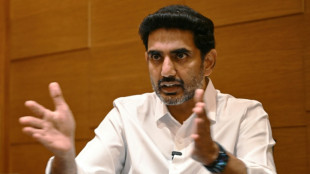 India plans AI 'data city' on staggering scale
India plans AI 'data city' on staggering scale
-
Jamaica's Thompson-Herah runs first race since 2024

-
 Crash course: Vietnam's crypto boom goes bust
Crash course: Vietnam's crypto boom goes bust
-
Ahead of Oscars, Juliette Binoche hails strength of Cannes winners

-
 US cattle farmers caught between high costs and weary consumers
US cattle farmers caught between high costs and weary consumers
-
New York creatives squeezed out by high cost of living

-
 Lillard matches NBA 3-point contest mark in injury return
Lillard matches NBA 3-point contest mark in injury return
-
NBA mulling 'every possible remedy' as 'tanking' worsens

-
 Team USA men see off dogged Denmark in Olympic ice hockey
Team USA men see off dogged Denmark in Olympic ice hockey
-
'US-versus-World' All-Star Game divides NBA players

-
 Top seed Fritz beats Cilic to reach ATP Dallas Open final
Top seed Fritz beats Cilic to reach ATP Dallas Open final
-
Lens run riot to reclaim top spot in Ligue 1, Marseille slip up

-
 Last-gasp Zielinski effort keeps Inter at Serie A summit
Last-gasp Zielinski effort keeps Inter at Serie A summit
-
Vinicius bags brace as Real Madrid take Liga lead, end Sociedad run

-
 Liverpool beat Brighton, Man City oust Beckham's Salford from FA Cup
Liverpool beat Brighton, Man City oust Beckham's Salford from FA Cup
-
Australia celebrate best-ever Winter Olympics after Anthony wins dual moguls

-
 Townsend becomes a fan again as Scotland stun England in Six Nations
Townsend becomes a fan again as Scotland stun England in Six Nations
-
France's Macron urges calm after right-wing youth fatally beaten

-
 China's freeski star Gu recovers from crash to reach Olympic big air final
China's freeski star Gu recovers from crash to reach Olympic big air final
-
Charli XCX 'honoured' to be at 'political' Berlin Film Festival

-
 Relatives of Venezuela political prisoners begin hunger strike
Relatives of Venezuela political prisoners begin hunger strike
-
Trump's 'desire' to own Greenland persists: Danish PM

-
 European debate over nuclear weapons gains pace
European debate over nuclear weapons gains pace
-
Newcastle oust 10-man Villa from FA Cup, Man City beat Beckham's Salford

-
 Auger-Aliassime swats aside Bublik to power into Rotterdam final
Auger-Aliassime swats aside Bublik to power into Rotterdam final
-
French prosecutors announce special team for Epstein files

-
 Tuipulotu 'beyond proud' as Scotland stun England
Tuipulotu 'beyond proud' as Scotland stun England
-
Jones strikes twice as Scotland end England's unbeaten run in style

-
 American Stolz wins second Olympic gold in speed skating
American Stolz wins second Olympic gold in speed skating
-
Marseille start life after De Zerbi with Strasbourg draw

-
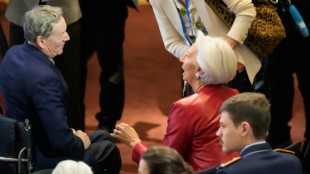 ECB to extend euro backstop to boost currency's global role
ECB to extend euro backstop to boost currency's global role
-
Canada warned after 'F-bomb' Olympics curling exchange with Sweden

-
 Ultra-wealthy behaving badly in surreal Berlin premiere
Ultra-wealthy behaving badly in surreal Berlin premiere
-
250,000 at rally in Germany demand 'game over' for Iran's leaders
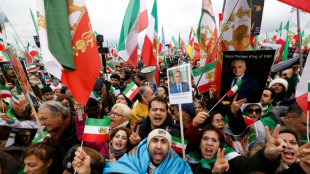
-
 UK to deploy aircraft carrier group to Arctic this year: PM
UK to deploy aircraft carrier group to Arctic this year: PM
-
Zelensky labels Putin a 'slave to war'

-
 Resurgent Muchova beats Mboko in Qatar final to end title drought
Resurgent Muchova beats Mboko in Qatar final to end title drought
-
Farrell hails Ireland's 'unbelievable character' in edgy Six Nations win

-
 Markram, Jansen lead South Africa to brink of T20 Super Eights
Markram, Jansen lead South Africa to brink of T20 Super Eights
-
Guehi scores first Man City goal to kill off Salford, Burnley stunned in FA Cup

-
 Swiss say Oman to host US-Iran talks in Geneva next week
Swiss say Oman to host US-Iran talks in Geneva next week
-
Kane brace helps Bayern widen gap atop Bundesliga

-
 Ireland hold their nerve to beat gallant Italy in Six Nations thriller
Ireland hold their nerve to beat gallant Italy in Six Nations thriller
-
European states say Navalny poisoned with dart frog toxin in Russian prison
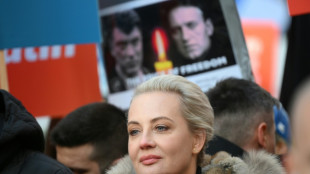

Pakistan's Sufi festivals reclaim spirit after violence
Rhythmic drums and spirited dancing are once again bringing life to the shrines of Pakistan's saints, where festivals were long stifled by jihadist violence.
As the harvest season ends and schools finish for the summer, villagers climb atop tractor trolleys, buses and rickshaws to head to the annual celebrations at Sufi shrines dotted across the country.
"Those who cannot meet during the rest of the year reunite at the fair," said Muhammad Nawaz, a farmer from Punjab province at the annual "mela" to honour saint Shah Jiwana in Jhang city in May.
"These fairs and Punjab's culture share a profound connection, one of love and brotherhood."
Fairgrounds, musicians, traditional wrestlers and motorcycle acrobats delight pilgrims lit by lanterns of all colours -- but always under the watchful eye of hundreds of police officers.
Centuries-old Sufi orders across the Islamic world have millions of followers, from Turkey to South Asia, and their beliefs are rooted in mysticism and a devotion to saints.
Many orthodox hardliners consider Sufi beliefs heretical, however, and Sunni militant groups such as the Pakistani Taliban and Islamic State have carried out bloody attacks at shrines and festivals.
In Pakistan, the attacks led authorities to ban festivals or limit their activities until recently.
"The goal was to avoid risking public lives," said Alloudin Mehmood, a government official at Bari Imam shrine in Islamabad, targeted by a 2005 suicide bombing that killed 19 people.
Security has dramatically improved after several military operations, allowing celebrations to slowly return.
"Only after receiving security clearance was the festival permitted last year, ending a 16-year hiatus," Mehmood added.
The event was shortened from five days to three, with mobile phone signals suspended for security reasons.
- 'Culture is resilient' -
The landscape of rural Pakistan is adorned with thousands of Sufi shrines, varying in size from grand edifices to modest structures, each steeped in a tapestry of associated legends.
"There are cities which emerged around these shrines and melas"said Pakistani author and anthropologist Haroon Khalid.
Particularly in Punjab and Sindh, saints, commonly referred to as "Pirs," are revered and miracles attributed to their spiritual presence.
"These shrines have endured threats and persecution," said anthropologist and author Zulfiqar Ali Kalhoro.
"Culture always has a remarkable resilience, capable of absorbing shocks and persevering through challenging times."
The annual celebrations commemorate the anniversaries of a saint's death and symbolise the spiritual union between devotees and the divine.
"Pilgrims find solace, healing, release and entertainment at these events that celebrate the 'friends of God'," said Carl W. Ernst, who has authored several books on Sufism.
Sufism has inspired some of Pakistan's most beloved artists, writers and musicians.
Sufi shrines often attract marginalised groups, including transgender women and drug addicts.
"We are never as well-received as at festivals," Khusbhoo, a transgender woman, told AFP.
- Come to the fair -
At the Shah Jiwana shrine, devotion gives way to entertainment in the late afternoon.
A juice seller belts out a famous Punjabi song: "Forget about your responsibilities for a while; let's head to the fair instead."
Thousands turn to the fields to witness traditional games such as Kabaddi, a rough contact sport where opponents slap each other around the face, and tent pegging, a more graceful display of horsemanship.
Against the neon background of the fairgrounds, 16-year-old stunt girl Fatima Noor prepares her motorbike.
Defying both gravity and social taboos, she circles the "wall of death" to the amazement of the crowd -- a chance to earn some money for her family.
"These fairs must be held, because we do not have any other employment opportunities," she said.
Eighteen-year-old Hamid Ijaz delighted in the celebrations, disrupted for much of his childhood.
"Because of how widespread hate and sectarianism are in our country, it's crucial to organise events like these where people can come together and foster love," he told AFP.
Y.Aukaiv--AMWN
